- Home
- Sarah Woodbury
Outpost in Time Page 2
Outpost in Time Read online
Page 2
The others viewed Huw as a servant, but the idea of being waited on that way was weird and uncomfortable to Christopher, so he’d settled on treating Huw like what he was—his cousin’s friend, who occasionally helped him put on armor. The best thing Huw did for Christopher, however, was to steer him through the blur of names and faces in the castles and countries David visited. Christopher had no memory for names whatsoever, but Huw did, and his voice had been a constant whisper in Christopher’s ear about who this lord was or that lady, and he never hesitated to tell Christopher exactly how he was supposed to behave in polite company.
This region of Ireland consisted mostly of farmland and pastureland. Drogheda, where Comyn’s ships were docking, was twenty miles northeast of Trim Castle, where the Irish Parliament was meeting. Drogheda was as far as James had intended for them to travel today, and they’d planned to spend the night either at the castle or in the guesthouse of the Dominican monastery, located on the north bank of the Boyne River at the highest point of the town.
With Red Comyn’s arrival, that plan wasn’t going to work, since there was no way they were letting Robbie Bruce spend the night anywhere near where a Comyn was staying.
The castle lay on the south side of the Boyne River, but the town had been built on both sides with a bridge across the Boyne connecting the two halves. Massive stone walls twenty feet high surrounded the whole thing, and the towers were three times higher than that.
According to James, only English people lived in the town. When the barons from England had conquered this part of Ireland, they’d kicked all the Irish out and made them live in the countryside, though they still had to tithe to the conquerors. Back in Avalon, after King Edward had conquered Wales, he’d done the same thing to the Welsh, effectively making them foreigners in their own country.
In fact, according to Aunt Meg (who rivaled David in her ability to tell you everything about everything), England had used the same tactic over and over again throughout the world. Here in Ireland, the Boyne River acted as the boundary between land that looked to England for authority (called the Pale) and land that was either entirely under Irish control or claimed and fought over by both sides. A big reason David had chosen this moment to come to Ireland and get the peace process going was because it had reached a point in the last year where the warfare never stopped.
Everybody was fighting everyone else, regardless of their ancestry. It was like every lord had delusions of grandeur and was trying to carve out a mini-kingdom for himself.
“We need to find out what Comyn plans before we return to Trim Castle,” Robbie said.
“Robbie is right,” William chimed in. “We can’t go back now!”
William and Robbie were always ready for anything that involved risk. Robbie was older than William, and therefore a little bit wiser, but the two of them together were what Aunt Meg called a potent combination. More to the point, they acted first and asked questions later.
Christopher was still waiting for James to answer. He was their leader, so in the end it wouldn’t matter what any of them wanted because they would do what James said. After another few seconds of silence, however, Christopher gave in to his impatience. “How worried are you?”
“If I were, would it help?” James gave a sharp shake of his head. “I’m worried, which is why we’re going to do as Robbie suggests and find out everything we can about why Comyn is here so we can tell your cousin.”
“We really are?” William said. “How?”
“We could find a way inside the castle to listen in on what they’re plotting,” Christopher said. “Hide in a hay cart like it’s the Trojan Horse.”
William and Robbie, both of whom knew Greek mythology, nodded vigorously.
Then Christopher’s brow furrowed. “Though, now that I think about it, it would probably be easier just to ride down to the dock. Even if Comyn is here to cause trouble, it isn’t as if he’s going to attack us—especially you, James. You’re the Steward of Scotland!”
“I’m sorry to say that I can’t agree with either plan,” James said. “If Comyn is making a play for power in Ireland, letting you anywhere near Drogheda could make you a pawn in his game.”
Christopher blinked. There it was again—the special status he had simply because he was David’s cousin. Christopher had been thinking that either he or Huw should be the one to sneak into the castle in a hay cart because nobody would recognize them. He regularly forgot that David was the King of England, the most powerful man in Europe. Not even the pope could tell him what to do. There was no way James was ever going to let Christopher do anything even slightly risky. He was lucky James had thought the ride to Drogheda was a walk in the park, or they wouldn’t have come.
“Does this mean that Comyn is conspiring with the castellan of the castle?” William said. “John de Tuyt is supposed to be loyal to Geoffrey de Geneville!”
There was a grim set to James’s jaw. “Maybe he still is.”
“But—” William was struggling with the implications. “That means Geneville—” He broke off, unable to finish the thought.
“Might not be faithful. Yes.” James was projecting strength and calm, which was good because Christopher certainly wasn’t feeling either. Christopher had met Geoffrey de Geneville over Gilbert de Clare’s corpse that first day at Westminster Castle. He was one of the barons David trusted, and Christopher got a sick feeling in his stomach at the thought that Geoffrey might no longer be a friend.
“We should confront Red now.” Robbie’s eyes lit with an inner fire.
Christopher decided that he didn’t care if he came off as ignorant again. “It makes no sense at all that Red would ally with Geneville. Even I know that he and Red have nothing in common. Red doesn’t even have any lands in Ireland.”
“Like me, his wife does, so he does.” James glanced at Christopher. “King David has made no secret of the fact that he doesn’t approve of his barons’ rule of Ireland. If they’re afraid that he might force them to give up their lands in favor of their Irish rivals, they might see the advantage of enlisting outsiders such as Red Comyn—men who aren’t loyal to King David and never will be.”
“Cousins will be pitted against each other! Brothers too!” William looked horrified, showing for once that he wasn’t as jaded as he pretended to be.
James softened his tone. “They already are, William. That’s why we’re here.” He motioned that everyone should close in around him. “Let’s not jump to conclusions. While it is my assumption that Comyn is up to no good, he could have sailed to Ireland as part of the Scot delegation to the Irish Parliament. Or even if Red isn’t here innocently, this may be some kind of internal affair that doesn’t affect us.”
Robbie scoffed, a sound James ignored, instead studying each of the young men in turn. “Robbie and I will ride towards the town and see if we can get a better view of what is happening on the dock. Huw and William will go along the river on foot since the terrain there is no good for horses. I want to know if anyone in Comyn’s party disembarks before reaching Drogheda.”
William opened his mouth to say something—knowing him, probably to argue—but James flicked out a hand to him before he could. “We need to know if it is truly Tuyt who greets Comyn, and if more men are coming. If Tuyt has an army too, or they are allied with other lords, it will change what King David does. Meet back here in an hour.” He pointed a finger at Huw. “No shooting. Keep those arrows in your quiver.”
Huw grinned, but he nodded. He wasn’t a knight and didn’t wear a sword. Instead he wore two sheathed knives, one long, one short, secured by a belt at his waist, and he held his great bow his left hand. That left his right hand free to reach the arrows on his back.
Finally, James turned to Christopher. “You will stay with the horses.”
Christopher didn’t even bother to complain. He’d known that staying behind would be his fate before James had opened his mouth. James would have insisted that it wasn’t because he did
n’t trust Christopher but because someone had to stay with the horses. But it showed Christopher yet again that his rank counted only when people were being polite. When push came to shove, Christopher was a newbie, not medieval, and unreliable.
He couldn’t keep his annoyance from showing, and his voice came out belligerent. “What you haven’t said is why Tuyt would conspire with Comyn in the first place. He isn’t a great lord. He’s just the castellan. None of these lands are his.”
“Tuyt’s ancestors sailed to Ireland with Strongbow at the very start of the conquest,” James said. “He has never known any home but Ireland.”
And with James simple explanation, Christopher finally understood why Ireland was such a problem: it had become home to these former Englishmen as much as it was to the Irish who were here first. Christopher missed his home at times so much his belly ached with it. Nobody here was going to give theirs up without a fight.
Chapter Two
Trim Castle
David
David’s fondness for battlements went beyond access to a long, life-threatening fall, though he was pleased to see that Trim Castle lay in one of the Boyne River’s sinuous curves. The river flowed roughly north to south on the castle’s east side as it wended its way northeast to the Irish Sea. Because of the precariousness of the castle’s location, a second river, on the west side of the castle, had been diverted as a further defensive measure, such that the castle was completely surrounded by water.
David didn’t want to time travel anywhere. In fact, just thinking about it made his stomach churn. Now that he had a wife and children, he was repelled not only by the idea of leaving them here alone but at deliberately risking his life to do so. The fact that he had done so multiple times had him questioning his own sanity. For this trip to Ireland, he’d left them behind in Wales at Dinas Bran. Lili wouldn’t have enjoyed the politics and the posturing of the last three weeks. She would definitely be having more fun with Anna and Bronwen than with him here.
And yet, the daily routine of being King of England—and now finally following through with some of his commitments as Lord of Ireland—had him longing for the freedom and anonymity of Avalon. Here, he couldn’t take a step, make an offhand comment, talk to someone, or make any kind of decision at all without it being examined, dissected, and discussed in absurd detail. He was rich and powerful, but he was also the object of jealousy, intrigue, and adulation. He could be objective enough about himself to acknowledge that he now wore a mantle of authority like an extra layer of skin, but much of the rest he could have done without.
Then again, the last few times he’d been in Avalon, he’d been treated like a kid, and he’d never managed to remain anonymous for more than a few hours before being hunted. So … no solution there either.
Outside of the time travel potential, battlements also tended to be good places to talk, which was what he’d been doing last year with the King of France when Gilbert de Clare’s men had attempted to assassinate them both. That happened also to be what Callum, David, and Dad were doing at the moment—hopefully without the assassination attempt. From the moment they’d set foot in Ireland, Callum had been one hundred percent about security, but David was prepared to jump with his dad if someone tried to do them in.
The rain continued to fall—at the moment more like a super heavy mist than actual rain—and a few drips were managing to make it through the timber and hide roof that covered this portion of the battlement. With Callum protecting the far end of the wall-walk, nobody could overhear them.
In most castles, the gap-toothed battlements weren’t exposed to the elements all the way around their perimeter. Lengths of them were usually enclosed to protect the defenders from enemy fire, with roofs made of wood and hide. During a siege, the hides were soaked in water so they wouldn’t burn easily, though that clearly wasn’t a problem today. The coverings were logical, really, but not obvious to the modern observer since anything not made of stone had long since been destroyed or decayed away.
Trim Castle itself was the largest castle in Ireland, with a stunning hundred-foot-tall white-washed keep that could fit three Aber Castles into it, red tile roofs, and a five-hundred-yard-long curtain wall with ten D-shaped towers. It was also Geoffrey of Geneville’s seat in Ireland. His son had died in 1292, however, leaving him no heir except for a granddaughter, Joan, who was only eight years old.
“It isn’t that I’m ready to give up,” David had been saying to his father, “but everybody’s talking past each other, and nobody will listen to anyone else.” He himself had not yet participated in the Parliamentary meetings themselves, not wanting to be perceived as overbearing. It was Dad who was facilitating the meetings. David confined himself to speaking to lords individually before and after the talks, campaigning for peace in the shadows.
“The Irish love to argue,” his father said dryly, “and the English are a close second.”
David snorted laughter, as he was meant to. “You did warn me. I should have pressed harder for them to come to Aber or Caerphilly.”
“To the people here, the world ends at the Irish Sea, and anything beyond it is here be dragons. It wasn’t always the case.”
“Your prejudices are showing, Dad.” David leaned into one of the crenels and looked out at the rain and the lush landscape beyond it. He’d been warned before coming that it rained a lot in Ireland. It rained a lot in Wales and England too, but there was a lot and there was a lot. His parents had arrived only a few days ago, not wanting to try Anna’s patience by leaving their five-year-old twins in her hands for too long, but David had been here for three weeks. While it didn’t rain all day, it did rain every day. No wonder the country was so green and everyone so argumentative.
Admittedly, as he’d said to his father, the Irish had a great deal to be angry about, and even though David hadn’t had anything to do with the initial conquest of Ireland a hundred years ago, he was the Lord of Ireland now. They blamed him.
“It would have been less of a security risk,” Callum said from the end of the walkway without looking at David. That would have required him to stop surveying the bailey.
“If Trim isn’t safe, no place is. You can’t protect against everything, particularly treachery from the inside,” David said.
“I can try.”
David turned back to his father so Callum wouldn’t feel like he was mocking him. Which he wasn’t. He agreed that security was of paramount importance for everyone. That was why every man’s credentials were checked twice before they entered the inner ward: once at the outer gate and once past the barbican. Not that anyone would have an ID card, but any man not in a lord’s private retinue had to be personally known to Geoffrey de Geneville’s captain or vouched for by someone he did know.
Weapons were the big problem, since every lord, knight, and man-at-arms carried a sword on his hip. No weapons were allowed in the great hall, which was swept daily for hidden stashes, and no lord had been allowed to bring more than ten men with him to Trim. That way, they wouldn’t have a repeat of what happened in France.
These regulations applied to David and his father too. Relations between David and his barons were strained enough without David turning Trim into his personal armed camp, and none of the lords would have come at all out of fear of being taken hostage or killed outright. Even Geoffrey de Geneville had complied with the rule, dispersing all but thirty men of his garrison, who were required for the most basic security of Trim, to Skryne Castle where Geoffrey’s wife, Maud, was staying for the week. Callum had circumvented the rules by sending most of the servants, stable boys, and craft workers to Skryne too and replacing them with David’s men in disguise.
Dad was rubbing at his chin as he looked out on the countryside with David. “I’m not sure some of these men know how to live without fighting. Someday they might be willing to talk, but it isn’t today.”
“They’ve been fighting a long time, and the grievances on both sides are many and justified.”
David let out a sharp sigh. “I know you and Mom just got here, but maybe we should go home.”
Dad shook his head. “We can’t go home. Leaving would show weakness and truly make things worse. The only way you can go home now without some kind of treaty or settlement is if you intend to return at the head of a massive army. Those you couldn’t subjugate you would kill, and then the remainder would have to listen. You have the resources to do it, too, which is the only thing that is keeping these men at the table.”
David stared at his dad. He hadn’t seen it. Maybe his father had known this all along and had assumed that David knew what he was doing, but he himself hadn’t put two and two together: the men of Ireland were only sitting down to talk because they thought David was holding a sword above their heads. It hadn’t been his intent, but now that his father had pointed it out, it was obvious that’s what they thought. And really, that was David’s own fault. He’d gotten the Scots to talk by threatening them with what would have been a ruinous war—why not the lords of Ireland?
From the other end of the wall-walk, Callum nodded to someone in the bailey below, and then he raised a hand to David and his father. “My lords, it’s time.”
Dad looked at David apologetically, “Son—”
David shrugged. “I know. I know. You have to go.” And then he added under his breath, “I hate being the bad guy.”
“You aren’t the bad guy.” Callum had followed up his warning by moving closer. “You’re about as far from being the bad guy in Ireland as could be imagined. You’re the most powerful man in the world, and still, the people love you.” He shrugged. “It’s just the nobles who are terrified of you and what you might do next—to them, for them, or with them.”

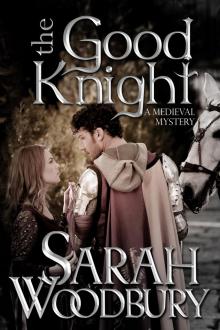 The Good Knight
The Good Knight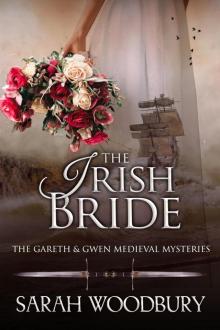 The Irish Bride
The Irish Bride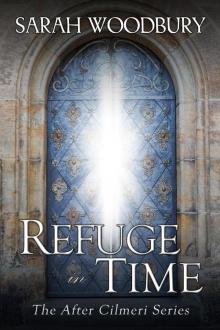 Refuge in Time
Refuge in Time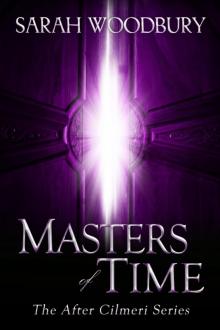 Masters of Time
Masters of Time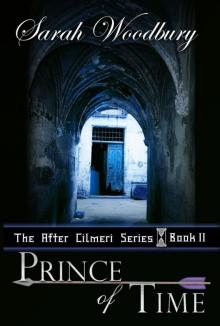 Prince of Time (Book Two in the After Cilmeri series)
Prince of Time (Book Two in the After Cilmeri series)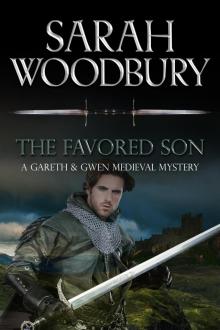 The Favored Son
The Favored Son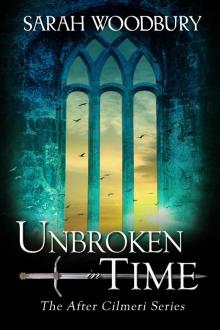 Unbroken in Time
Unbroken in Time![[The Lion of Wales 01.0] Cold My Heart Read online](http://i1.bookreadfree.com/i/03/22/the_lion_of_wales_01_0_cold_my_heart_preview.jpg) [The Lion of Wales 01.0] Cold My Heart
[The Lion of Wales 01.0] Cold My Heart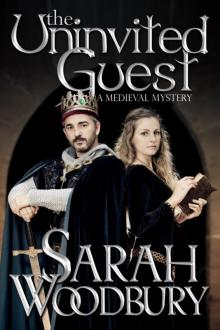 The Uninvited Guest
The Uninvited Guest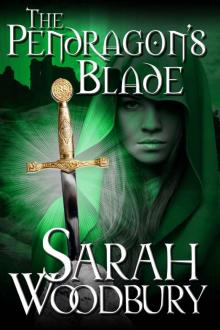 The Pendragon's Blade (The Last Pendragon Saga Book 2)
The Pendragon's Blade (The Last Pendragon Saga Book 2)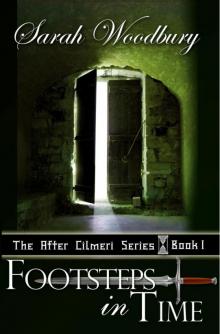 Footsteps in Time
Footsteps in Time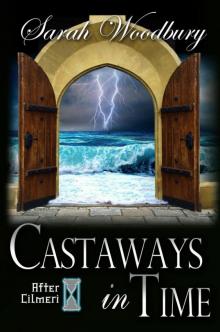 Castaways in Time (The After Cilmeri Series)
Castaways in Time (The After Cilmeri Series) Winds of Time
Winds of Time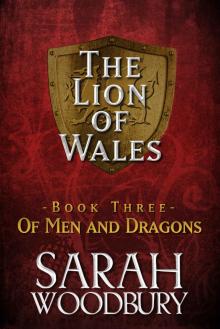 Of Men and Dragons (The Lion of Wales Book 3)
Of Men and Dragons (The Lion of Wales Book 3)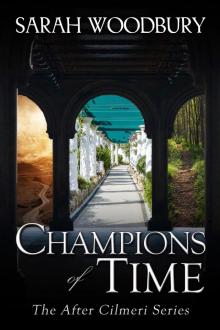 Champions of Time
Champions of Time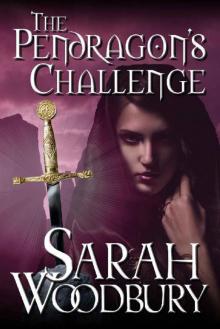 The Pendragon's Challenge (The Last Pendragon Saga Book 7)
The Pendragon's Challenge (The Last Pendragon Saga Book 7)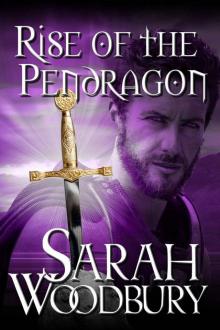 Rise of the Pendragon (The Last Pendragon Saga Book 6)
Rise of the Pendragon (The Last Pendragon Saga Book 6)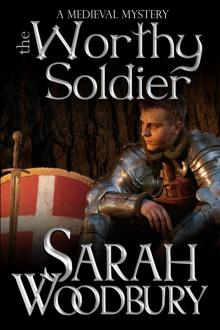 The Worthy Soldier
The Worthy Soldier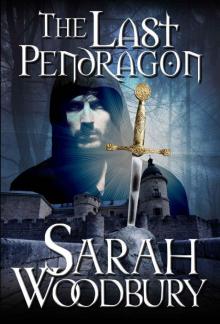 The Last Pendragon (The Last Pendragon Saga Book 1)
The Last Pendragon (The Last Pendragon Saga Book 1)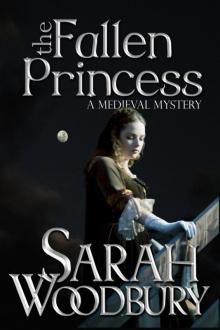 The Fallen Princess
The Fallen Princess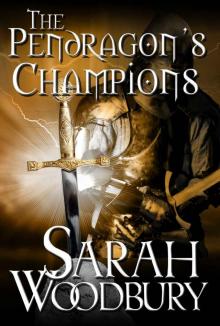 The Pendragon's Champions (The Last Pendragon Saga Book 5)
The Pendragon's Champions (The Last Pendragon Saga Book 5)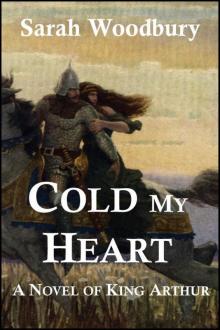 Cold My Heart: A Novel of King Arthur
Cold My Heart: A Novel of King Arthur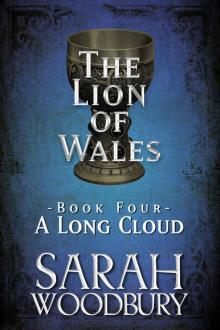 A Long Cloud (The Lion of Wales Book 4)
A Long Cloud (The Lion of Wales Book 4)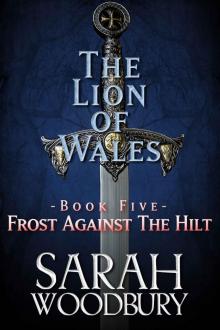 Frost Against the Hilt (The Lion of Wales Book 5)
Frost Against the Hilt (The Lion of Wales Book 5)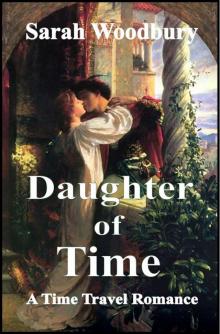 Daughter of Time: A Time Travel Romance
Daughter of Time: A Time Travel Romance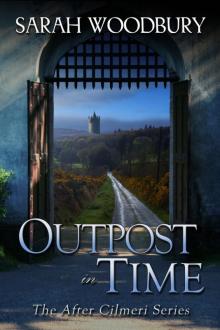 Outpost in Time
Outpost in Time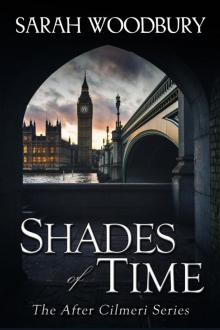 Shades of Time kobo
Shades of Time kobo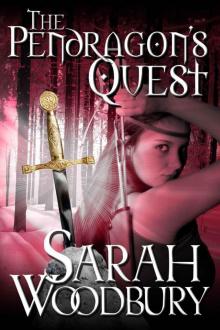 The Pendragon's Quest (The Last Pendragon Saga Book 4)
The Pendragon's Quest (The Last Pendragon Saga Book 4)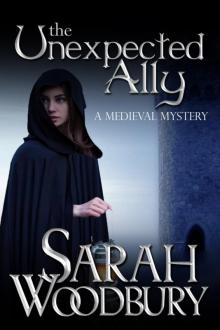 The Unexpected Ally
The Unexpected Ally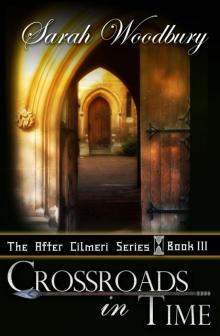 Crossroads in Time (The After Cilmeri Series)
Crossroads in Time (The After Cilmeri Series)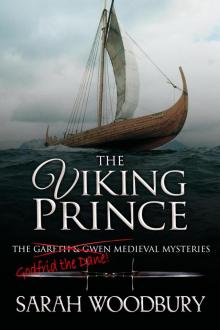 The Viking Prince
The Viking Prince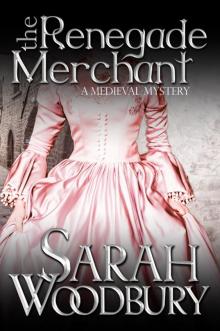 The Renegade Merchant
The Renegade Merchant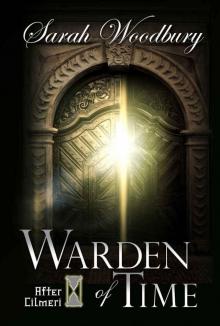 Warden of Time (The After Cilmeri Series Book 8)
Warden of Time (The After Cilmeri Series Book 8)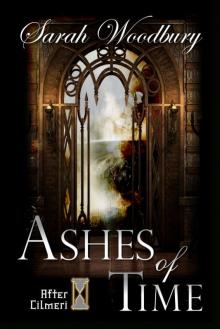 Ashes of Time (The After Cilmeri Series)
Ashes of Time (The After Cilmeri Series)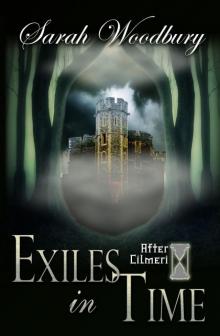 Exiles in Time (The After Cilmeri Series)
Exiles in Time (The After Cilmeri Series)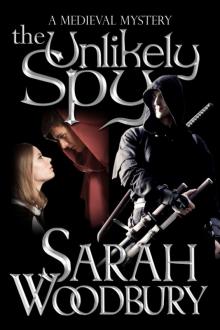 The Unlikely Spy
The Unlikely Spy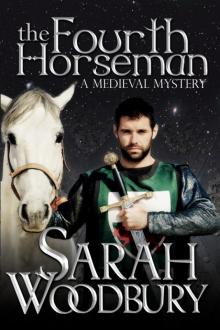 The Fourth Horseman
The Fourth Horseman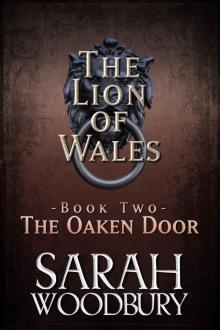 The Oaken Door (The Lion of Wales Book 2)
The Oaken Door (The Lion of Wales Book 2)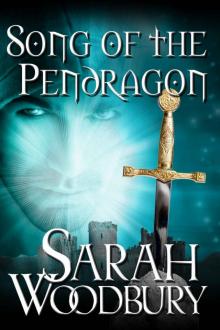 Song of the Pendragon (The Last Pendragon Saga Book 3)
Song of the Pendragon (The Last Pendragon Saga Book 3)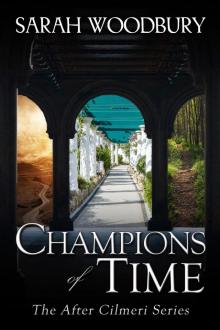 Champions of Time (The After Cilmeri Series, #13)
Champions of Time (The After Cilmeri Series, #13)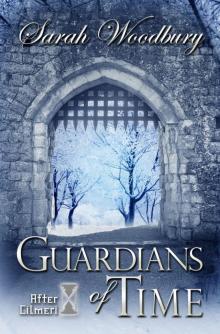 Guardians of Time
Guardians of Time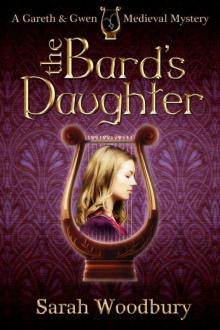 The Bard's Daughter (A Gareth and Gwen Medieval Mystery)
The Bard's Daughter (A Gareth and Gwen Medieval Mystery)